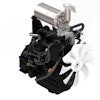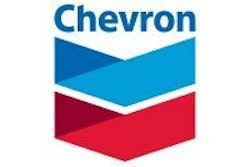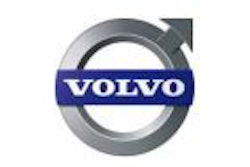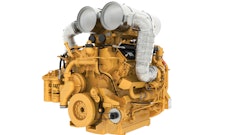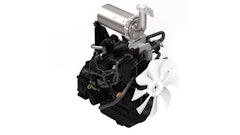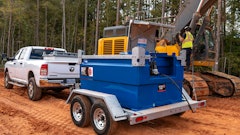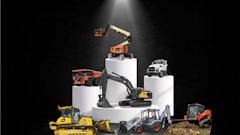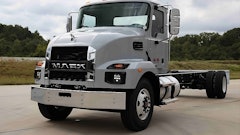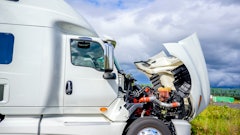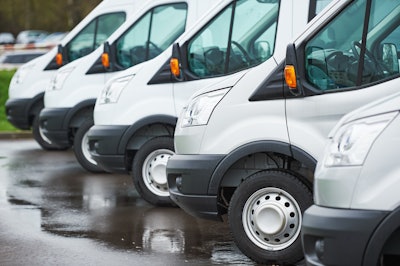
The construction industry and related fields have been facing various changes to vehicle regulations in an attempt to manage the amount of CO2 emissions being put out by fleets. With everything changing so quickly with many new unknowns, it is important to look to the experts to help clear things up. Gladstein Neandross & Associates (GNA) hosted the Future of Sustainable Fleets seminar on May 15, 2024 to shed some light on the topic. The seminar was presented by Nate Springer, vice president of market development at GNA, and the session's panel featured speakers from major industry players, including Volvo Trucks North America, Penske Transportation Solutions, and Chevron.
Together, the panel worked through questions from media representatives for various commercial vehicle and equipment groups. These are some of the key points raised throughout the session.
Sustainable Fleets - Fleet Perspective
The industry is currently facing a flood of new energy options for fleets and countless new policies. Springer stated that the industry is experiencing peak complexity due to these technological advancements and new regulations.
“When we look at all of this from a fleet perspective, it … seems like fleets are faced with this dizzying array of options to not only meet regulatory requirements but to meet their own sustainability goals or their customers' sustainability goals,” said Andrew Cullen, senior vice president of fuels and facility services at Penske.
With the movement toward cleaner fuel options, there have been a few specific fuel types being promoted and supported. These include:
- Renewable diesel
- Biodiesel
- Renewable natural gas
- Hydrogen
Nuray Elci, vice president of renewable fuels at Chevron, said, “They all have their own benefits, limitations, challenges, and of course, the policy environment is making it even more challenging for everybody to decipher.”
Fleets are being bombarded with so many changes and regulations that it is becoming hard to know what is best while still adhering to requirements.
Biodiesel vs. Renewable Diesel
During the session, a question about the status between biodiesel and renewable diesel was asked. The question referred to the fact that it seems that renewable diesel has really taken the lead recently and they wanted to know why.
“[With] renewable diesel, both the capacity and the demand really has grown significantly on the western states and of course, the lower carbon fuel standards have incentivized those markets, which really has flourished in California, Oregon, Washington markets,” said Elci.
As many states have taken on policies that support lower-carbon fuel solutions, renewable diesel has started to become more popular. The country was looking for different options when it came to fuel with lower carbon emissions. Big companies have started pushing renewable diesel as a strong contender and that may have influenced the boom in renewable diesel.
“After many years of testing and evaluating renewable diesel, we've decided on trucks to make it 100% of our fueling the trucks as they leave the factory. And we think that sends a signal to the market that it is robust, does not absorb moisture or have any issues in terms of operation of the vehicle, or warranty,” said Keith Brandis, vice president of partnerships and strategic solutions at Volvo Trucks NA.
The show of support from companies like Volvo Trucks may have a role to play in the uptick in renewable diesel demand.
Hydrogen vs. Battery
Throughout the country, fleets in general are looking to use a more sustainable fuel type. Many people are predicting that for long-distance trucking, the route is going to be hydrogen as opposed to battery.
Brandis said, “We have battery electric for - high density, short … hauls out and back - we have hydrogen fuel cell. We also will continue to invest in internal combustion engines, burning fossil-free, either renewable our power could be hydrogen.”
Brandis mentioned that since hydrogen is such a small element, the trucks will require adaptations in order to properly store it, but this adaptation will allow longer distances and shorter fuel in times. Volvo is continuing to test hydrogen fuel cell in different environments to improve the user experience.
Companies continue to test different energy options to determine which will be a better option for things like long-haul trucking.
Driver Acceptance
Brandis mentioned the uncertainty that came with changing to electric energy five years ago. He said there were concerns over whether they needed to build a whole new vehicle to use the technology or if they could try to swap the engines in existing trucks. Once they made the first switch attempt, it was time for feedback.
“We knew that they would love the acceleration because you step on the pedal and it goes. We knew that they would love that it's so quiet, that you can hear other traffic sounds,” said Brandis.
Drivers were finding that it was very different from driving a diesel truck. There were quite a few improvements compared to diesel trucks - there were even some that were unexpected.
Branis added, “It's actually surprising that it was more stable because of the lower center of gravity with the battery packs mounted where they are on the chassis. When you come to that off-ramp. It just holds that off-ramp at speed.”
Along with these benefits, users of the more sustainable fuel option were pleasantly surprised with the lack of diesel smell at the end of the day.
“They love the power, they love the quiet, they love the smoothness, but they're also interested in learning how to operate the vehicles more efficiently,” said Cullen.
With a concern in the move to lower carbon emissions options, it is important to note that there are benefits in switching over - even the drivers can notice the improvements.
Sustainable Fleets Report
Overall, the session brought answers to questions that seemed to loom over the industry and brought more confidence to the market. Along with this seminar, GNA released a 75-page 2024 State of Sustainable Fleets report. This report covers the mentioned topics and a few more in-depth and provides readers with a better understanding of the future of sustainable fleets and how policies and requirements affect fleets.
With the help of the major industry players and the report, it is easier to understand what is happening and to gain confidence in the regulations and various low-emission fuel options.




